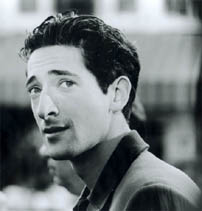After seething critiques of the film industry like Robert Altman’s The Player, it’s hard not to think of movie producers as vapid creatures – money men adorned in beige linen blazers and collarless buttondowns, their duplicitous eyes shrouded behind a pair of Armani sunglasses. Mark Severini and Gary Palermo, the co-founders of the New York-based production company Palisades Pictures, however, defy the stereotype. When I called them last week to discuss their latest project, Restaurant, an independent film set in Hoboken, their enthusiasm was palpable. Both busy men (they not only co-own Palisades Pictures, but they also run an advertising and marketing company called Gramercy Group) they were each willing to talk at length about Jersey, movies and local history. “We want to bring film back to New Jersey,” said Severini, who grew up in Jersey City. Film buffs at heart, Severini and Palermo were eager to discuss the area’s history. Apparently, pre-Hollywood, Fort Lee was considered the capital of the film industry. D.W. Griffith made his first silent movie in a New Jersey studio, and the term “cliffhanger” comes from the Perils of Pauline, a silent movie serial that was filmed on the Palisades Cliffs. Each episode ended with the heroine literally hanging from a cliff. Severini and Palermo named their production company after Palisades Park, a now-defunct amusement park in Fort Lee. To revitalize New Jersey’s role in the movie industry and make a little history of their own, Severini and Palermo’s latest project, Restaurant, is a wholly New Jersey affair. The movie tells the story of a group of struggling artists who work in restaurant in Hoboken and stars Adrien Brody (“Summer of Sam,” “The Thin Red Line”) and Grammy winner (and Jersey native) Lauryn Hill. It was written by New Jersey native Tom Cudworth and directed by New Jersey native Eric Bross. “The script itself really rang home with me,” said Severini. “I was born in Jersey City, and I worked in restaurants when I was going through college, so the script was very reality-based.” Severini, Palermo and Bross all agreed that setting the film in Hoboken was essential to the plot. “Originally, Restaurant wasn’t set in Hoboken,” said Bross. “But then I changed it. Hoboken is right across the river from Manhattan and so it plays as a nice metaphor for the idea of people aspiring to the Big Apple. Plus, Hoboken has a nice history itself.” Palermo, who lived in Hoboken for 10 years, shared Bross’ sentiment. “At first we were a little hesitant because the city is so crowded. We were concerned that our trucks would take up valuable parking space,” he said with the chuckle, proving his insider status. “But Hoboken is a great city. We love the look, and everyone was great.” “The city was very cooperative,” added Severini. “Because Gary has roots in Hoboken, they dealt with us as local Hobokenites, not outsiders.” Apparently, everyone from the fire department to the police department supported the project. Even Mayor Anthony Russo played a small role, literally. The mayor, and part-time actor – Russo has made appearances in a number of films including a cameo in Analyze This – was filmed having dinner at the restaurant where the main characters work. It might have been his breakthrough performance, as this was to be Russo’s first speaking part. Unfortunately, his scene was edited out of the film’s final version. “There is still a small scene where you can identify the mayor,” said Palermo. “But when you have a film, you have to shave it, cut it down. It had nothing to do with his acting ability.” “Mayor Russo is a wonderful guy and he did a good job,” added Bross. “Unfortunately, that’s showbiz. What can you do? I even had to cut my own sister out of the movie.” While Bross may have the power to edit the mayor out of his movie, he remains humble. Last Thursday, the afternoon before opening night, Bross stood in the middle of the Hoboken PATH station and handed out invitations to the screening. “Opening night feels like Election Day, waiting for the results to come in,” he said. “Handing out invitations is my grass-roots approach. It makes it personal. You can write that in your story.”
Our Digital Archive from 2000 – 2016
